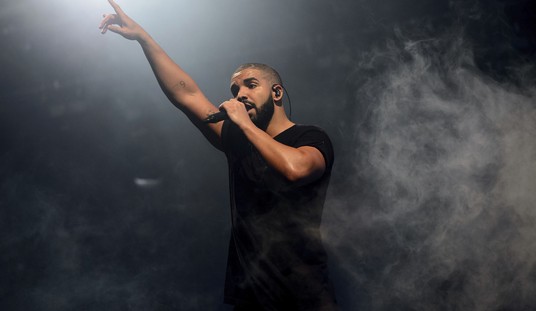To be fair to the Biden administration, it’s hard for them to avoid talking about the current tensions between China and Taiwan because reporters keep asking them about it. Also, China keeps the story in the news every week by flying fighters close to Taiwan’s airspace and unleashing angry rhetoric on the subject through its state-run media outlets. That cropped up again this week when Biden attended the forum hosted at CNN and was asked about the situation.
Biden’s answers this time began a little more in line with what he was “supposed to say,” but then he couldn’t help himself from veering off and freestyling a bit. He claimed that while he didn’t want a new cold war with China, he was afraid they were “going to engage in activities that will put them in a position where they may make a serious mistake.” That was clearly enough to set off alarm bells in Beijing, but Uncle Joe didn’t stop there. He said he wanted China to know that we weren’t going to change our views on the subject and when asked specifically if America would “come to Taiwan’s defense if it were attacked,” he said, “Yes, we have a commitment to do that.”
Well, that was all the Chinese Communist Party needed to hear. They quickly sent out Foreign Ministry spokesperson Wang Wenbin to say that there was “no room for compromise” on the issue of Taiwan. He then repeated their standard assertions and threats. (Associated Press)
“When it comes to issues related to China’s sovereignty and territorial integrity and other core interests, there is no room for China to compromise or make concessions, and no one should underestimate the strong determination, firm will and strong ability of the Chinese people to defend national sovereignty and territorial integrity,” Wang said.
“Taiwan is an inalienable part of China’s territory. The Taiwan issue is purely an internal affair of China that allows no foreign intervention,” Wang said…
The U.S. should “be cautious with its words and actions on the Taiwan issue, and not send any wrong signals to the separatist forces of Taiwan independence, so as not to seriously damage China-U.S. relations and peace and stability in the Taiwan Strait,” Wang said.
Most of the Asian policy analysts I follow still don’t see a very strong likelihood of China completely crossing the line and launching a military invasion of Taiwan. Or at least not yet. Some speculate that they may be considering such a move after 2024. But when the Chinese view Joe Biden as intentionally baiting them in public, it probably makes it hard for them to swallow their pride.
The problem with Biden’s remarks on Thursday is that he started off by saying that we weren’t going to “change our views,” but then turned around and made a statement that seemed to fly in the face of the policy that we’ve been adhering to since the seventies. When asked if America would “come to Taiwan’s defense it was attacked,” he responded with a flat “yes” to begin his answer.
Granted, there is some wiggle room in the phrase ‘come to their defense.’ While the reasonable listener could take that to mean that we would militarily intervene and fight against Taiwan’s enemies, perhaps that’s not actually what Biden meant. Our longstanding agreement is that we will provide Taiwan with the means to defend itself while still recognizing the One China policy. That intentional contradiction is how we’ve managed to play both sides of the fence for a long time now. But the Chinese clearly didn’t hear it that way.
U.S. Defense Secretary Lloyd Austin was quickly dispatched to clean up the mess. He answered reporters’ questions with the standard lines that Biden was supposed to be using on Thursday.
Asked Friday whether the U.S. would defend Taiwan if the island were attacked by China, U.S. Defense Secretary Lloyd Austin told a reporter he would not discuss hypothetical situations, but also said, “Nobody wants to see cross-Strait issues come to blows -– certainly not President Biden, and there’s no reason that it should.” Speaking in Brussels after a NATO defense ministers’ meeting, Austin added that Washington remains committed to its longstanding “one China” policy.
In Taipei, a spokesperson for independence-minded President Tsai Ing-wen said the U.S. has shown its support for Taiwan through concrete actions and the island’s 23 million citizens would not surrender to pressure or act rashly.
That should have been the end of it. But yesterday, representatives from our State Department stirred up yet another hornets’ nest. They put out a statement saying that the United States is seeking ways to have Taiwan “participate more meaningfully” at the United Nations. And they did it just as China’s representative was preparing to give a speech celebrating 50 years of Beigjin’s occupation of the UN seat representing China. So now China is back up on its hind legs again.
Exit question: Is anyone coordinating foreign policy in the Biden administration anymore or is everyone just freestyling? If we’re thinking of shifting to a more aggressive Taiwan policy, so be it. That’s the privilege of the executive branch to decide. But when we have one department seemingly reassuring China that we’re sticking to our traditional policy while another appears to be rattling our sabers against them, something inside of this administration simply isn’t functioning properly.








Join the conversation as a VIP Member